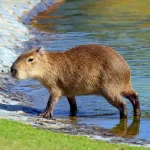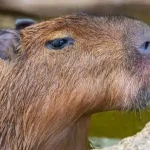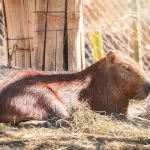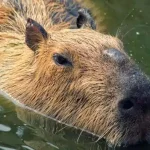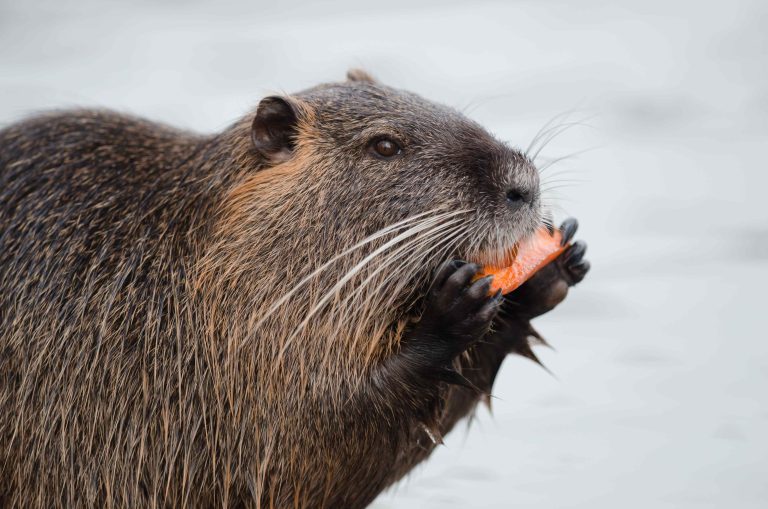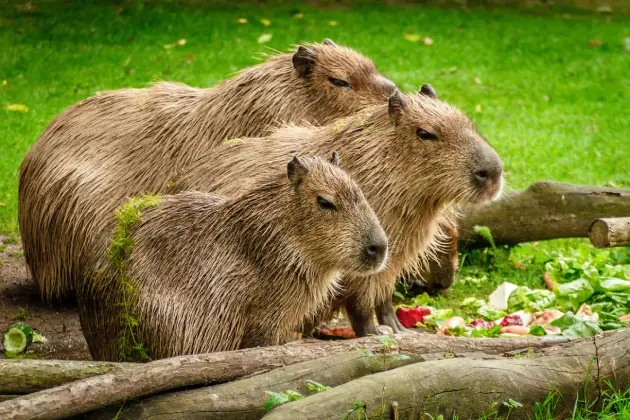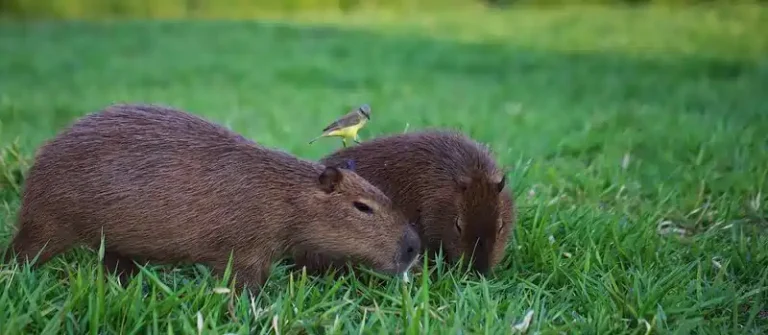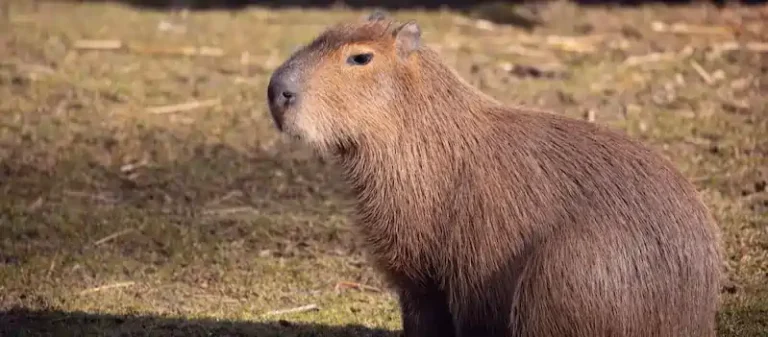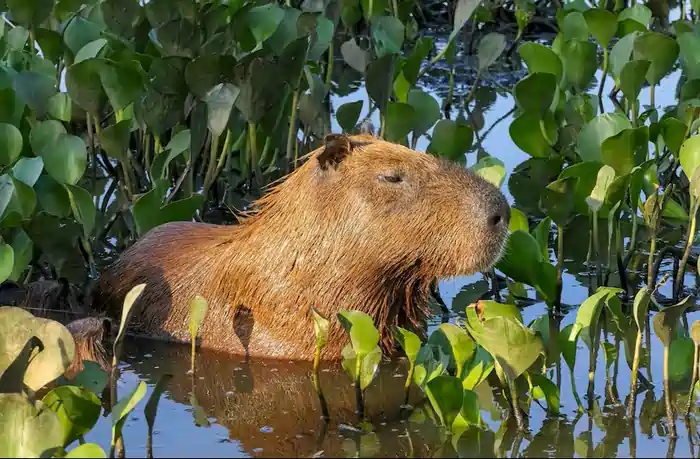
Capybaras are often seen in viral videos online, lounging by the water, enjoying the company of other animals, or simply chilling in their natural habitat. These large, friendly creatures are native to South America but have caught the attention of people worldwide as potential pets. If you live in Missouri or are planning to move there, you may wonder: Can you own a capybara in Missouri? In this article, we will dive into the legalities, the care required, and the unique responsibilities that come with owning a capybara in the state.
What Is a Capybara?
Capybaras are the largest rodents in the world, known for their calm demeanor and social nature. These semi-aquatic creatures usually live in groups in their natural habitats, which consist of wetlands, rivers, and forests. Capybaras are herbivores, feeding mainly on grasses and aquatic plants, and they are excellent swimmers. Their social nature makes them great companions for those who can provide them with enough space, care, and attention.
While capybaras are fascinating creatures, owning one as a pet is not the same as owning a dog or a rabbit. It requires a commitment to meet their unique needs. Capybaras are not solitary animals and thrive best when they have another capybara for company, or in some cases, a human who can devote significant time to bonding.
Can You Own a Capybara in Missouri?
So, can you own a capybara in Missouri? The answer is generally yes. Missouri does not have a statewide ban on owning capybaras, which means that in most areas of the state, you can legally own one of these fascinating creatures. However, before you decide to bring a capybara into your home, it is essential to be aware of local regulations and requirements.
While Missouri doesn’t explicitly prohibit capybara ownership, some local cities and counties may have specific ordinances or zoning laws that regulate or restrict the ownership of exotic pets. Therefore, it is always important to check with your local government or animal control office to ensure you are in compliance with any laws that may apply in your area.
Capybara ownership may also be subject to certain health and safety regulations to ensure the animal’s well-being and that of the public. This could include needing proper permits, meeting housing requirements, or taking steps to ensure the animal is not a danger to people or other animals.
What You Need to Know About Owning a Capybara
If you are considering owning a capybara in Missouri, it’s important to understand the level of care and responsibility these animals require. Here are some key aspects to keep in mind when thinking about bringing a capybara into your life.
Space Requirements
Capybaras are large animals, growing up to 4 feet in length and weighing as much as 140 pounds. Due to their size and nature, they require a significant amount of space. Ideally, you should have a large, securely fenced yard or an area where the capybara can roam freely. They are also very social creatures, so it’s better to have two capybaras instead of one if possible.
These animals are semi-aquatic, which means they need access to a water source. A small pond, large kiddie pool, or similar setup is ideal for giving them the opportunity to swim. Without access to water, capybaras can become stressed and may develop health problems.
Social Needs
Capybaras are social animals, and it is highly recommended to have more than one if you plan to own one. They thrive on interaction, whether with other capybaras or with their human companions. If left alone for long periods, a capybara can become lonely and may exhibit behaviors such as biting or destructive chewing. Owning a capybara requires a commitment to spending time with them regularly.
In addition to their social nature, capybaras are known for their affectionate behavior toward other animals, including dogs and cats. They can live harmoniously with other pets, but introductions should always be done carefully to ensure compatibility.
Diet and Health Care
Capybaras are herbivores, and their diet consists mainly of grass, hay, vegetables, and fruits. It is essential to ensure they are eating the right foods to keep them healthy and active. Fresh water should always be available, and the water should be changed regularly to prevent contamination.
Like any other pet, capybaras need regular check-ups from a veterinarian. They require a vet who is experienced in exotic animals, as capybaras have unique health needs that might not be well understood by a regular veterinarian. Common health concerns include dental problems, obesity, and skin infections. Regular veterinary visits are necessary to ensure that your capybara stays healthy.
Legal Considerations and Permits
Although Missouri generally allows capybara ownership, some counties or cities may require specific permits for exotic pets. If you are considering getting a capybara, it’s essential to verify whether any local regulations exist in your area. It’s also important to understand that Missouri may have additional regulations on the types of enclosures or facilities required to house an exotic pet like a capybara.
If you live in an area where capybara ownership is regulated, you may need to apply for permits or prove that you can provide the necessary care and living conditions. Check with local authorities to ensure you’re following the correct procedures before getting a capybara.
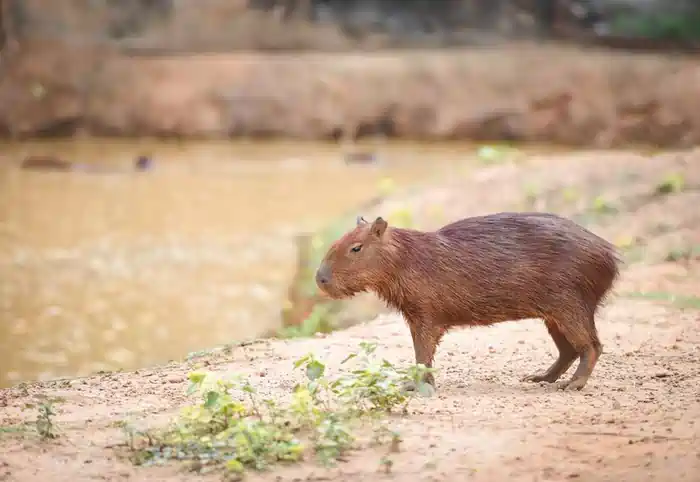
Are There Any Restrictions on Capybara Ownership in Missouri?
As mentioned, Missouri doesn’t prohibit the ownership of capybaras, but it’s always important to check your local laws. In some areas, restrictions may apply due to concerns over public safety, disease control, or animal welfare. For example, some counties or cities may limit the number of exotic pets one can own or require special licenses.
Additionally, capybaras are considered exotic animals, and owning them might require meeting certain standards for housing, health care, and maintenance. Be prepared for an ongoing commitment to ensure that your capybara stays healthy, happy, and safe.
What Are the Benefits of Owning a Capybara?
While owning a capybara comes with unique challenges, the rewards can be significant. These gentle giants can make great pets for people who have the time and resources to care for them. Capybaras are known for their calm and friendly demeanor, and they are often very affectionate toward their human companions. Many owners report that their capybaras enjoy cuddling, playing, and spending time together.
Owning a capybara can also be a unique educational experience, especially for families with children. Children can learn about animal care, responsibility, and the importance of respecting wildlife. Plus, the charm of having a capybara as a pet can be an interesting conversation starter, and they can make a fun and interactive companion.
Conclusion
In conclusion, while Missouri does not have statewide laws that prohibit the ownership of capybaras, it is essential to check local regulations before bringing one home. Capybaras require a lot of space, attention, and care, and they thrive in social environments. If you are considering owning a capybara, be prepared to meet their unique needs and ensure that you comply with any local regulations.
At Capybara Pet Info, we aim to provide helpful information for those interested in owning capybaras as pets. If you’re in Missouri and interested in owning one, make sure you have a solid understanding of their care requirements and legal considerations before making your decision.
FAQs
1. Is it legal to own a capybara in Missouri?
Yes, capybaras can be owned in Missouri, but it’s essential to check local laws and regulations to ensure compliance with any city or county-specific restrictions.
2. What kind of space do capybaras need?
Capybaras require a large, securely fenced area with access to a swimming area like a pond or pool. They also need plenty of social interaction with either other capybaras or humans.
3. Do I need a special permit to own a capybara in Missouri?
Missouri generally does not require a special permit for capybara ownership, but it’s crucial to verify local ordinances that may impose restrictions or permit requirements.

